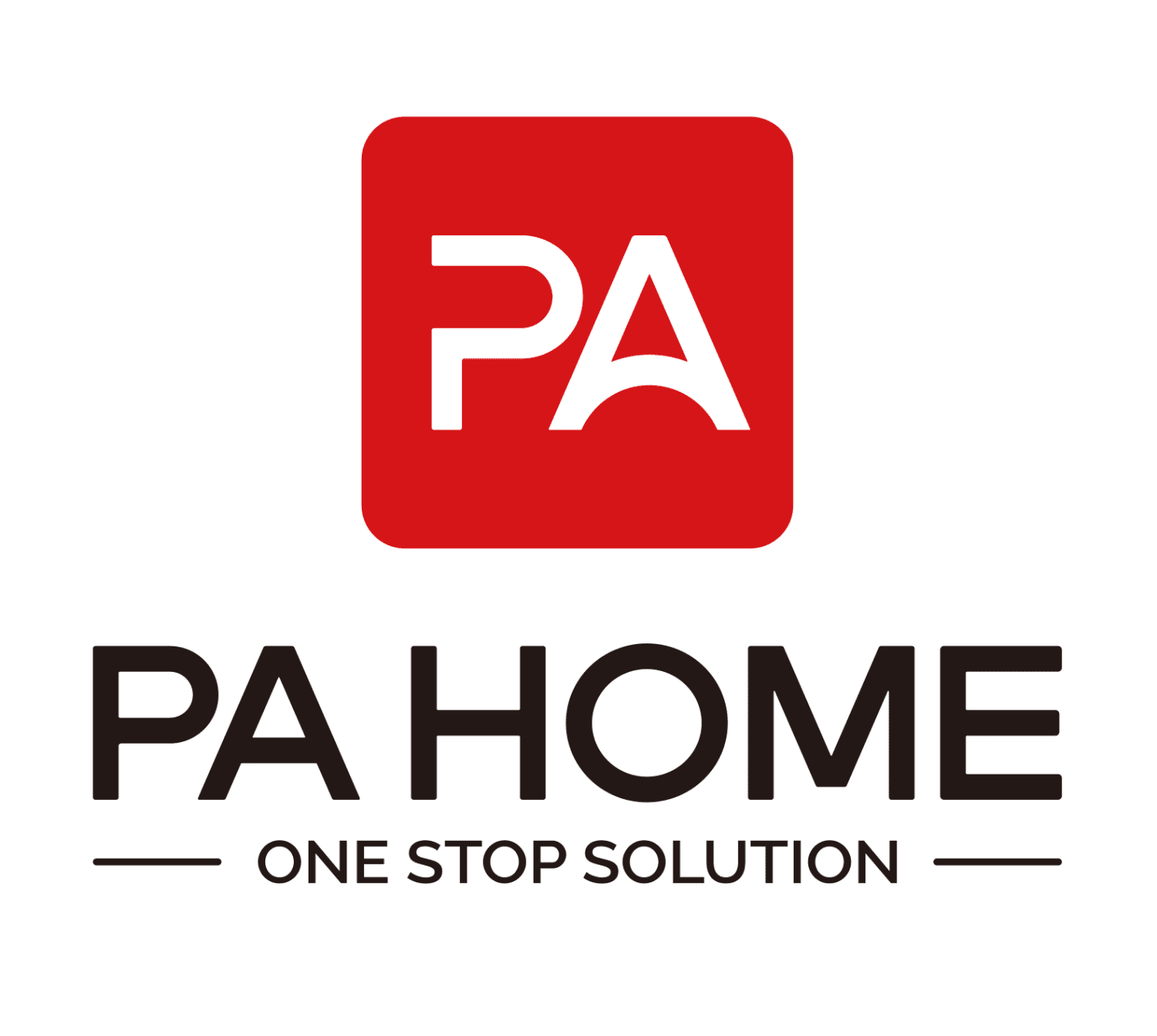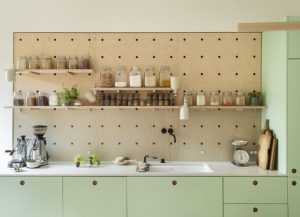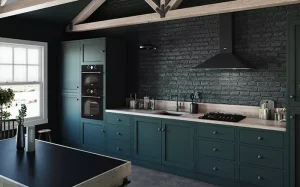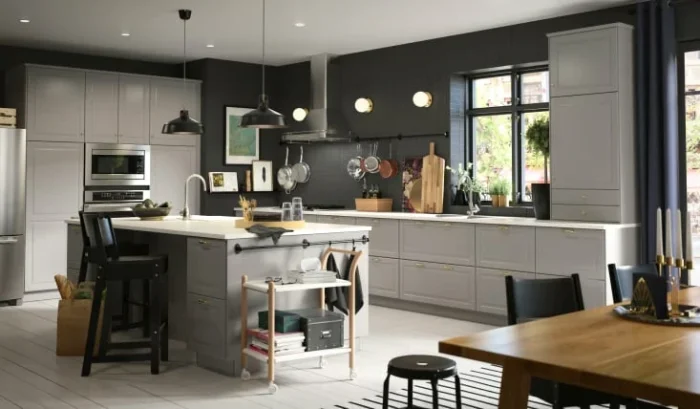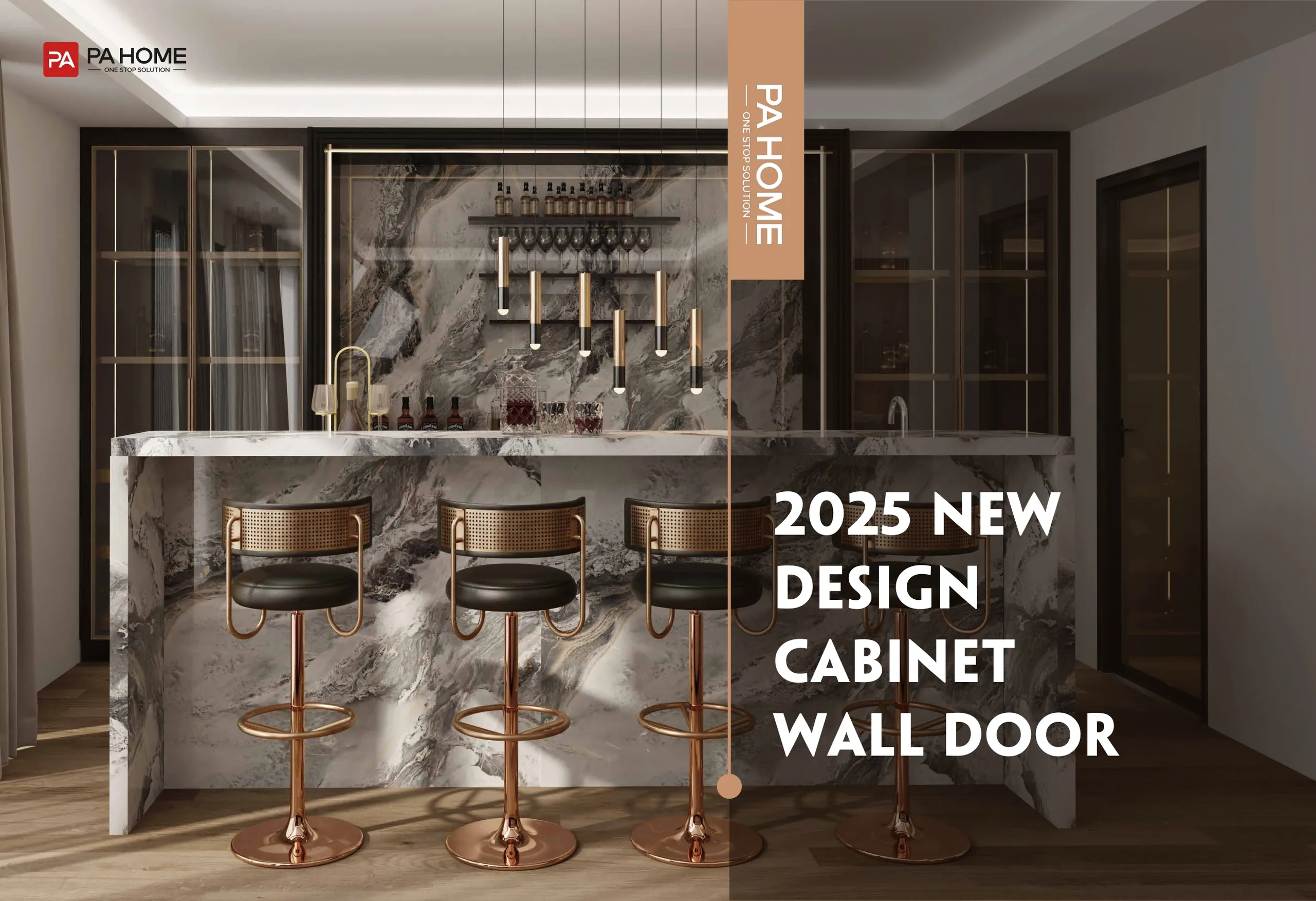Looking to upgrade your home with sleek, durable windows? Residential aluminum windows are becoming a top choice for modern homeowners—and for good reason. Did you know that aluminum window sales grew by 7.2% annually from 2020 to 2023, driven by their energy efficiency and design flexibility? Whether you’re renovating or building new, this guide will walk you through everything you need to know about aluminum residential windows, from their benefits to selecting the best manufacturers.
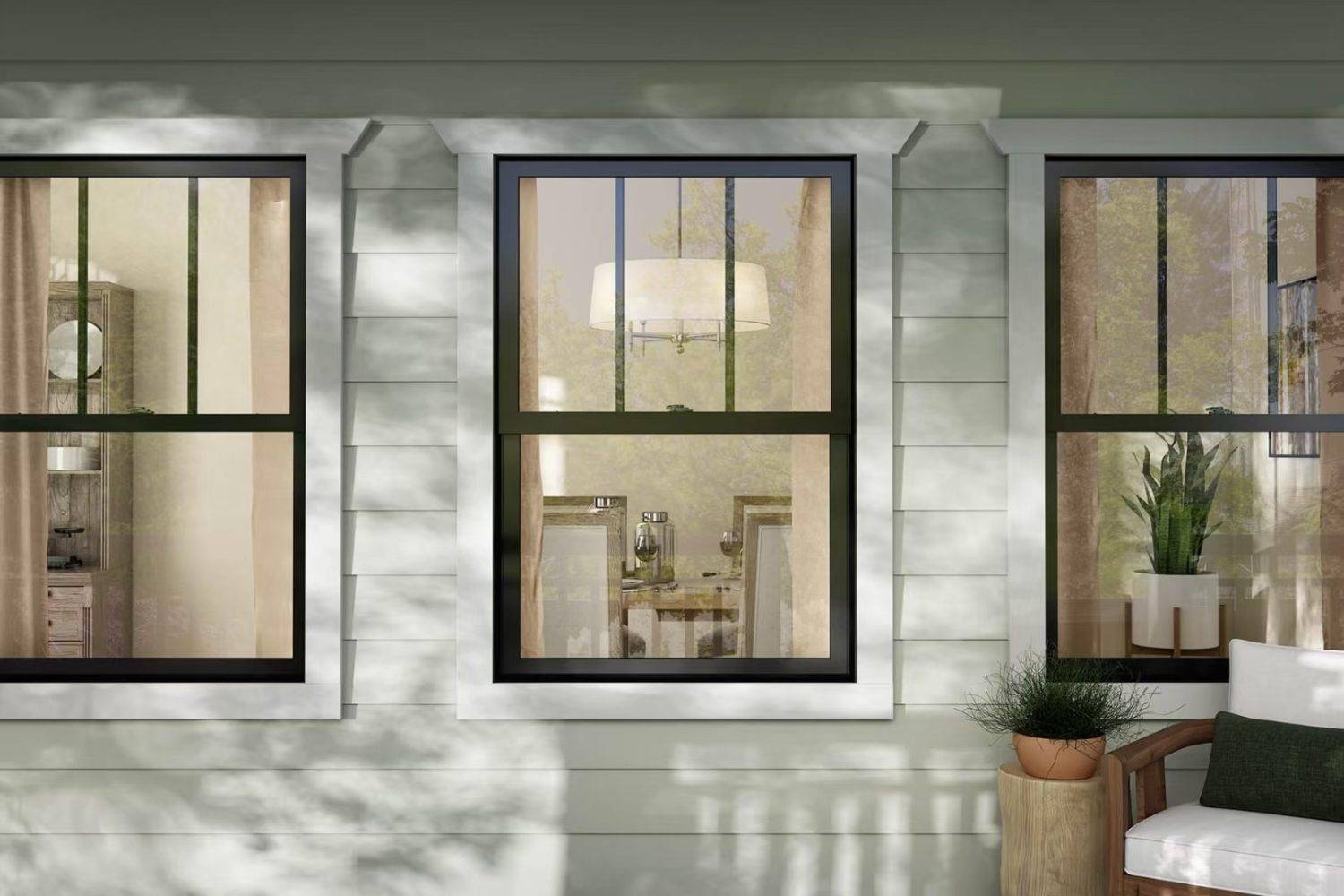
Why Choose Residential Aluminum Windows?
Aluminum windows offer a range of compelling benefits that make them an excellent choice for residential properties. One of the standout features is their durability. Aluminum windows are incredibly robust, able to withstand even the harshest weather conditions—from intense sun to heavy rain and strong winds—without deteriorating. This makes aluminum windows ideal for homes in diverse climates, providing long-lasting performance with minimal upkeep.
In addition to their durability, aluminum windows are known for their low maintenance. Unlike wooden windows, which may rot or require regular painting, aluminum frames are resistant to corrosion, ensuring they retain their sleek appearance for years without needing constant attention. PA Window’s Star C-C110 Series Casement Window is a perfect example,it features a corrosion-resistant frame, offering peace of mind and reducing the need for frequent upkeep.
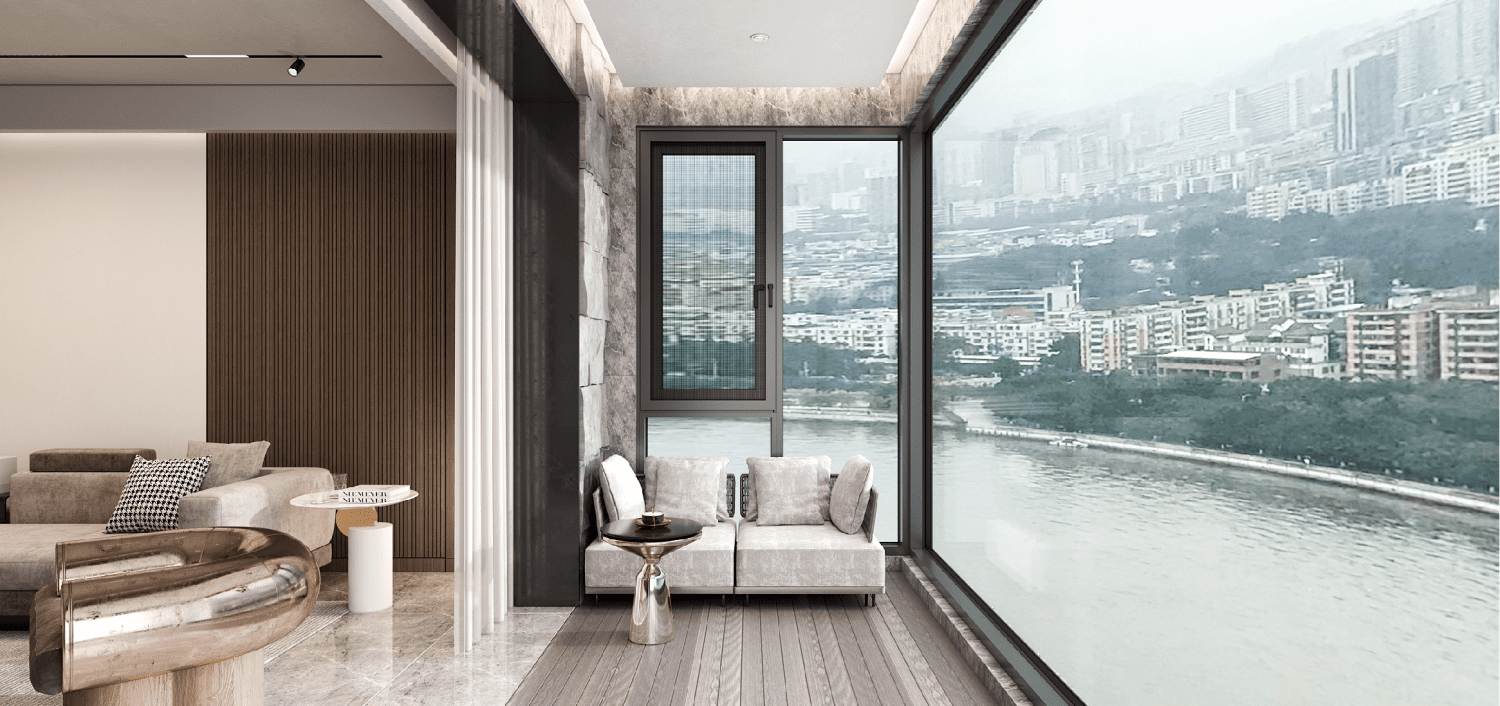
Another major advantage is their modern and sleek appearance. The slim frames of aluminum windows allow for larger panes of glass, enhancing the amount of natural light that enters your home. This sleek, modern design suits various architectural styles, making aluminum windows a versatile choice for almost any home.
Finally, security is another key benefit. The sturdy construction of aluminum windows makes them more resistant to break-ins, offering enhanced protection for your home and peace of mind.
Types of Residential Aluminum Windows
There are several types of residential aluminum windows available, each offering unique features and benefits to suit different design preferences and functional needs. Whether you’re looking for optimal ventilation, a sleek design, or maximum natural light, aluminum windows can meet your needs in various ways. Here’s a closer look at some of the most popular types:
1. Casement Windows
- Design and Operation: Hinged at the side, casement windows open outward with the help of a crank mechanism. This design provides excellent ventilation and is particularly useful for hard-to-reach areas such as over sinks.
- Benefits: They offer a wider opening than many other window types, allowing for better airflow. Their tight seal when closed also makes them more energy-efficient, offering higher insulation.
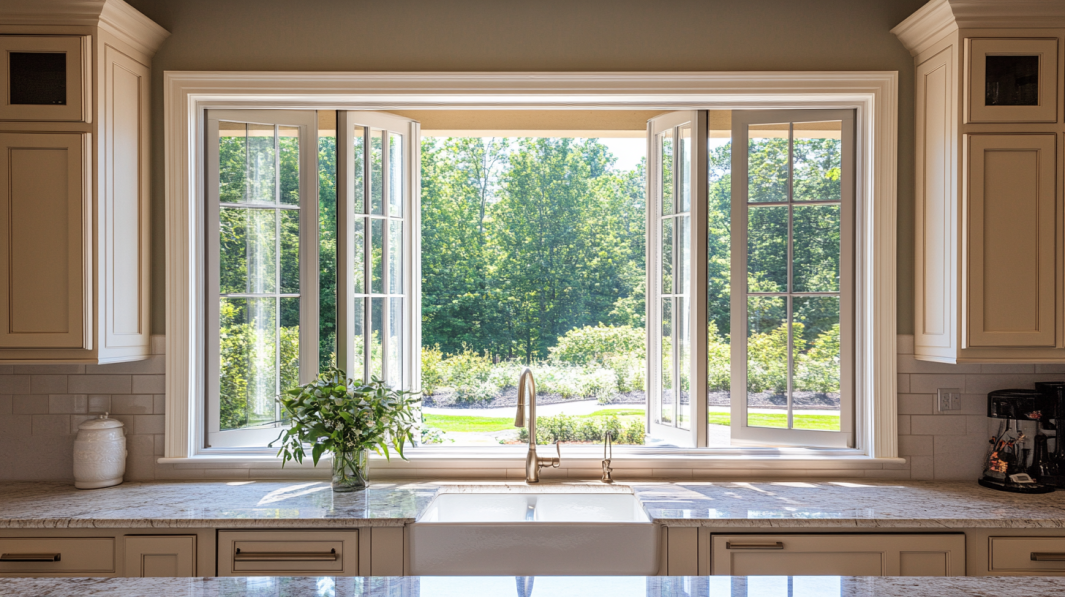
2. Sliding Windows
- Design and Operation: Sliding windows feature a horizontal sliding mechanism, where one panel moves over the other. They are easy to open and close, making them a convenient option for spaces where outward-swinging windows might be impractical.
- Benefits: Sliding windows are perfect for areas where space is limited, such as kitchens or bathrooms. They are low maintenance and often provide a modern look with wide glass panels that allow plenty of natural light.
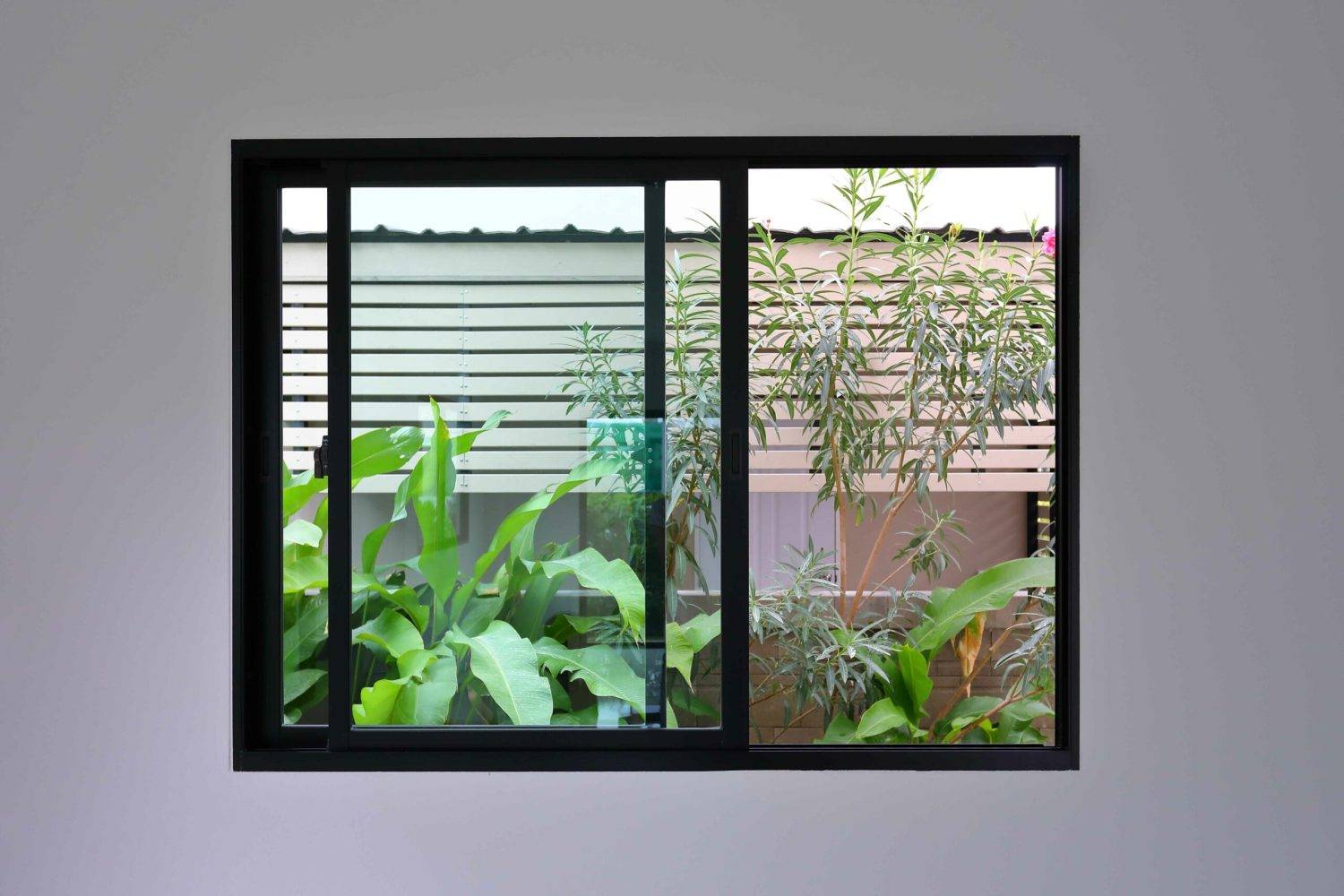
3. Awning Windows
- Design and Operation: Hinged at the top, awning windows open outward, creating an “awning” effect. This design allows the window to remain open even during light rain, making it ideal for areas that need ventilation but are prone to wet weather.
- Benefits: Awning window offer great airflow and can be combined with other window types for optimal ventilation in various parts of your home. The ability to open during rain without water entering is a unique feature of awning windows.
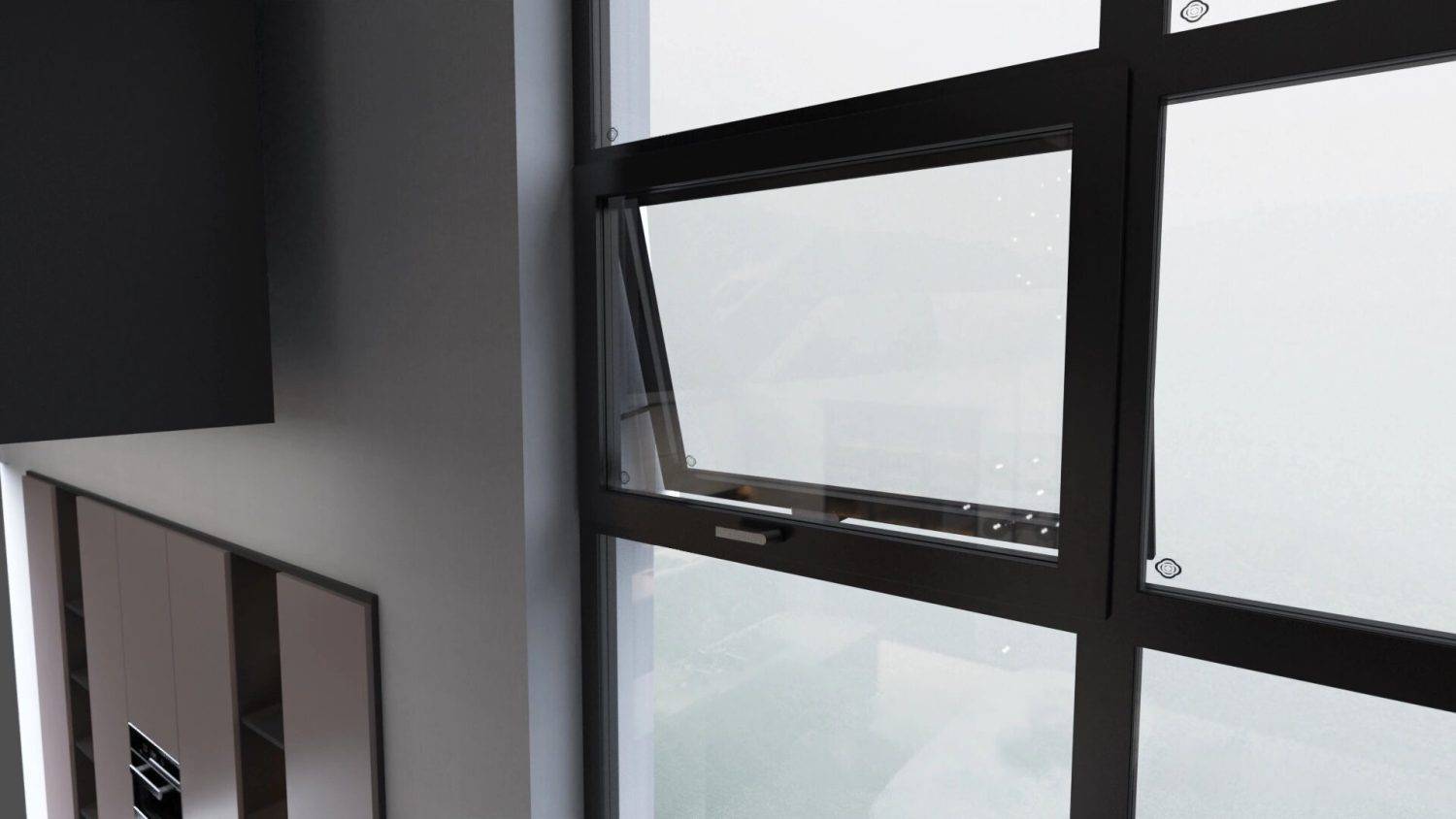
4. Picture Windows
- Design and Operation: Picture windows are large, fixed windows that do not open. Their main purpose is to frame stunning outdoor views while allowing natural light to flood the room.
- Benefits: Ideal for living rooms, dining areas, or any room where you want to enjoy panoramic views, picture windows allow unobstructed views and are perfect for creating an open, airy atmosphere.
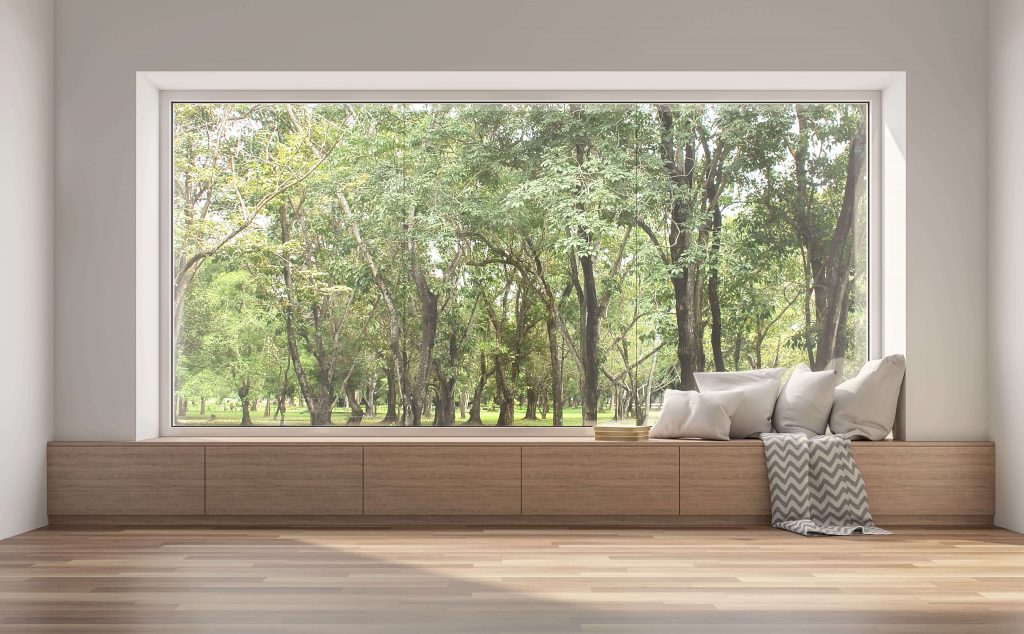
5. Double-Hung Windows
- Design and Operation: Double-hung windows feature two sashes that move vertically. Both the upper and lower sashes can be opened for ventilation, offering flexibility in how you regulate airflow.
- Benefits: These windows are easy to clean, as both sashes tilt inward. They are a classic window style that works well with both traditional and modern home designs, providing versatility and functionality.
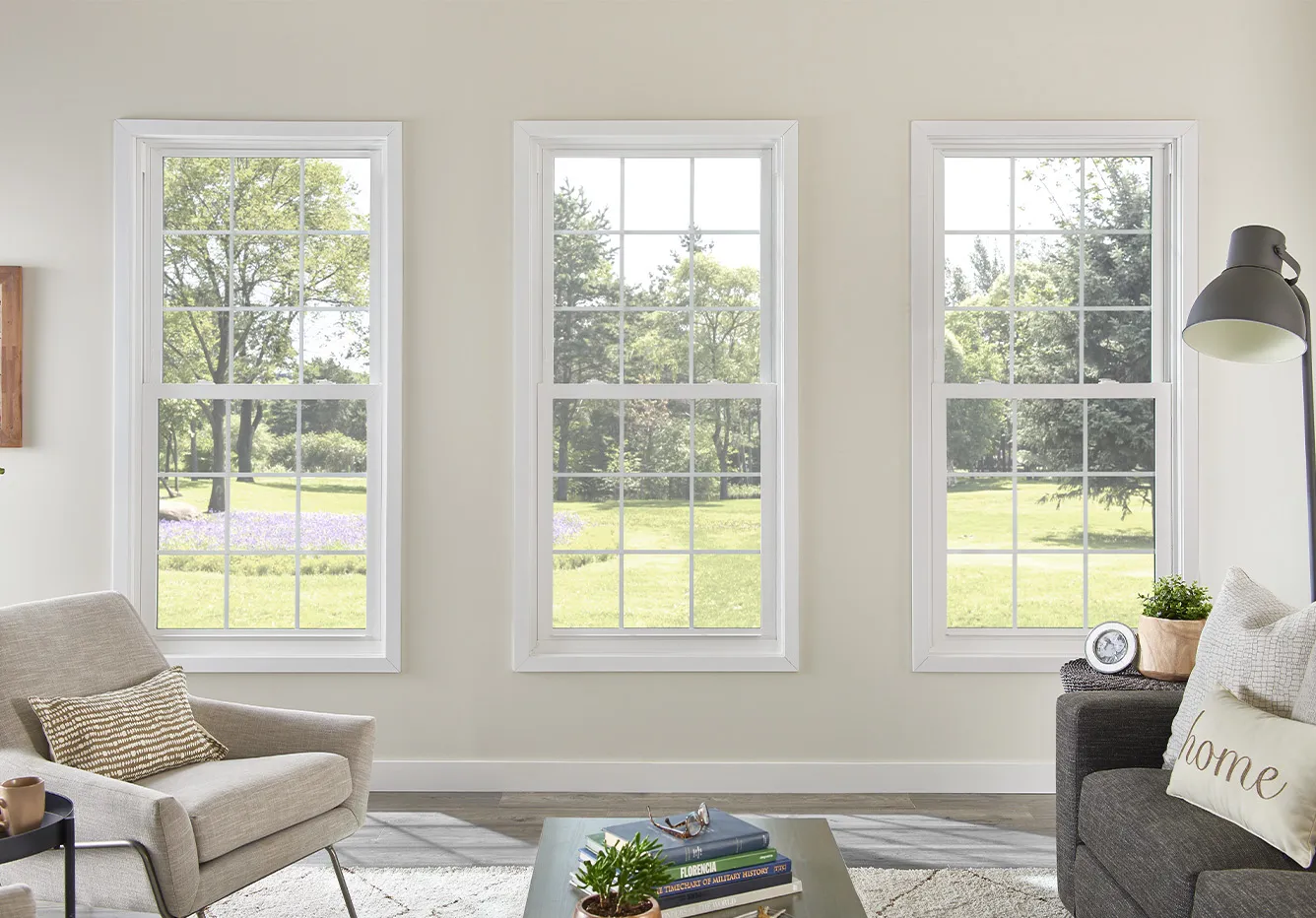
6. Bay and Bow Windows
- Design and Operation: Bay and bow windows extend outward from the house, creating a unique, curved shape. These windows typically consist of three or more panels of glass, with the center panel being larger.
- Benefits: They create a dramatic effect, adding extra space and light to your room. Perfect for creating a cozy reading nook or adding an architectural focal point to your home, these windows offer both style and functionality.
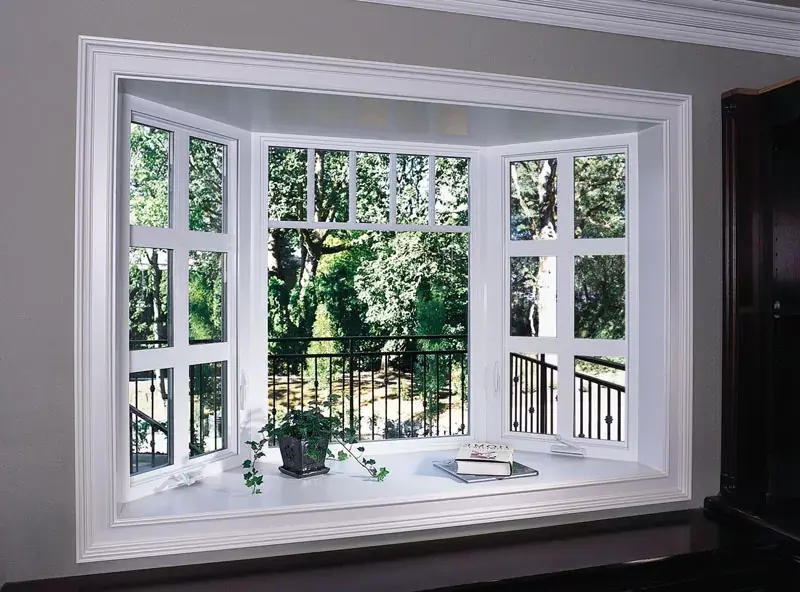
Cost of Residential Aluminum Windows
When considering the installation of residential aluminum windows, understanding the cost structure is crucial to making an informed decision. While aluminum windows generally offer a more affordable option than wood windows, the price can vary depending on a variety of factors.
1. Material Quality and Frame Construction
The type of aluminum used in the window frames can have a significant impact on the cost. Higher-quality aluminum alloys, such as those used in premium window series, tend to be more expensive but offer better durability, corrosion resistance, and thermal insulation properties. Thermally broken frames, which are designed to improve energy efficiency by preventing heat transfer, also add to the overall price.
2. Window Style and Size
The style of the window you choose can influence its cost. For example, casement windows and double-hung windows typically cost more than sliding windows or fixed frame windows, as they involve more intricate hardware and mechanical parts. Additionally, custom sizes or larger windows will increase the overall price due to the increased material and labor required for installation.
3. Glass Configuration and Insulation
The type of glass used in your aluminum windows plays a significant role in both cost and performance. Energy-efficient glass, such as double-glazing or Low-E glass, is more expensive but offers better insulation, helping to reduce energy costs in the long run. Triple-glazed glass, which provides superior insulation, can further increase the cost but is ideal for homes in extreme climates.
4. Installation Costs
The cost of installation is another important factor to consider. While aluminum windows are generally easier to install compared to wooden windows, custom installations or homes with unique window openings may require additional labor. Installation costs can also vary depending on your location, as labor rates can differ from region to region.
5. Brand and Manufacturer
Just like with any other product, the brand and manufacturer of the aluminum windows can affect the price. Established manufacturers with a proven track record of quality and reliability may charge a premium for their products, but they also provide peace of mind knowing that you’re investing in windows built to last. Additionally, some manufacturers offer extended warranties and better customer service, which can justify the higher cost.
Cost vs. Value: Are Aluminum Windows Worth It?
Yes—but let’s break it down with some numbers:
| Feature | Aluminum Windows | Vinyl Windows | Wood Windows |
|---|---|---|---|
| Average Lifespan | 40+ years | 20–30 years | 15–20 years |
| Maintenance | 10–50 hours/year | 20–100 hours/year | 150–1500 hours/year |
| Cost/Year | $10–$50 | $20–$100 | $150–$300 |
| ROI at Resale | 68% | 62% | 60% |
| Energy Efficiency | High (with thermal breaks) | Medium | Low |
| Durability (Weather Resistance) | Excellent (corrosion-resistant) | Good (UV resistant) | Fair (prone to rot) |
How to Choose the Best Residential Aluminum Windows?
Selecting the right residential aluminum windows is about more than just price and aesthetics. You need to consider durability, energy efficiency, security, and the reputation of the manufacturer. With so many options on the market, finding the best aluminum windows for your home can be overwhelming. Here’s a guide to help you make the best decision.
1. Material and Build Quality
Not all aluminum residential windows are created equal. High-quality aluminum windows use aircraft-grade aluminum alloys for better strength and corrosion resistance. Here are some key factors to check:
- Surface Treatment – Look for anodized, electrophoretic, or powder-coated finishes for enhanced weather resistance and durability.
- Aluminum Thickness – The standard thickness ranges from 1.4mm to 2.0mm. Thicker frames offer better stability and wind resistance, ideal for coastal or extreme weather areas.
- Welding & Assembly – Premium aluminum windows feature seamless welding or precision jointing, improving both appearance and sealing performance.
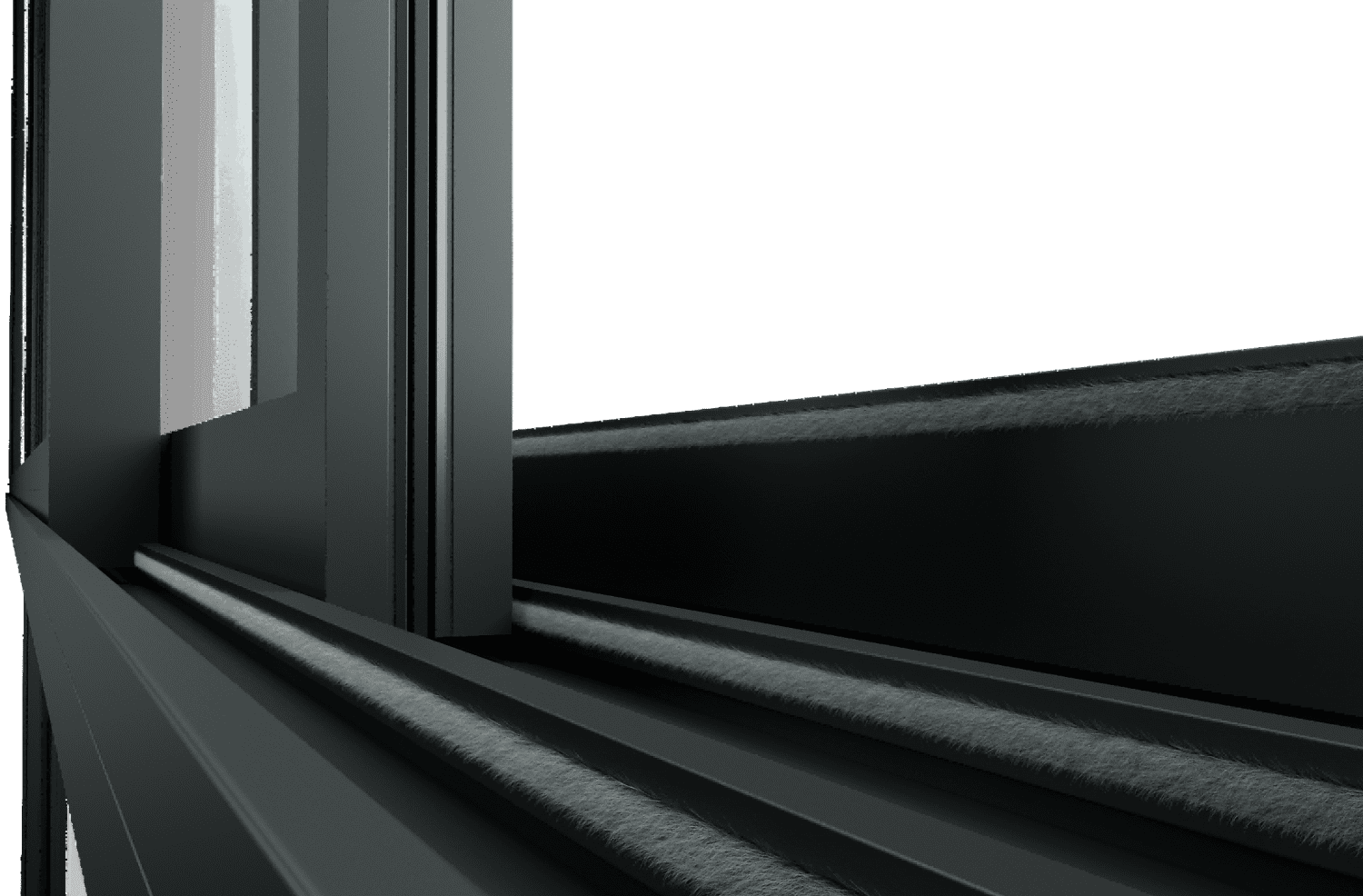
2. Glass Selection
Glass quality significantly impacts insulation, noise reduction, and security. Consider the following options:
- Double or Triple-Pane Glass – Filled with inert gases like argon or krypton, which reduce heat transfer and improve energy efficiency.
- Low-E (Low-Emissivity) Glass – A thin metallic coating reflects heat, keeping your home cool in summer and warm in winter.
- Laminated Glass – Made of two layers with a PVB interlayer, increasing safety. Even when broken, the glass remains intact rather than shattering into pieces.
3. Energy Efficiency and Insulation
To reduce heating and cooling costs, choose energy-efficient aluminum residential windows. Pay attention to:
- U-Factor – A lower value means better insulation. Look for windows with a U-Factor below 0.30.
- Solar Heat Gain Coefficient (SHGC) – A lower SHGC reduces heat gain from sunlight, ideal for hot climates.
- Air Leakage (AL) – A lower AL rating ensures better sealing, preventing unwanted air infiltration.
4. Security and Hardware Components
Home security is crucial, especially for high-rise buildings or homes with children. Look for:
- Multi-Point Locking Systems – Enhances anti-theft protection by securing the window at multiple points.
- Fall Prevention Features – Essential for high-rise residences, including window safety locks or guard rails.
- Premium Hardware – Stainless steel hinges, reinforced tracks, and durable seals ensure smooth operation and long-term durability.
5. Certifications & Manufacturer Reputation
To ensure you’re purchasing from reliable residential aluminum window manufacturers, look for these certifications:
| Certification | Description |
|---|---|
| ENERGY STAR | Ensures that products meet strict energy efficiency guidelines set by the U.S. Environmental Protection Agency. |
| NFRC (National Fenestration Rating Council) | Provides performance ratings for windows, including insulation and solar heat gain, helping consumers compare products. |
| AAMA (American Architectural Manufacturers Association) | Certifies that windows meet established industry standards for performance, durability, and weather resistance. |
Where to Buy Residential Aluminum Windows?
When you’re in the market for residential aluminum windows, choosing where to buy them is as important as selecting the right type. You have several options, each with its own advantages.
1. Local Window Dealers and Showrooms
These are great for seeing the products firsthand and getting a feel for the material and build quality. Local dealers can offer expert advice and often handle installation, which makes the process straightforward and personal.
2. Major Home Improvement Stores
Chains like PA Home stock a wide range of aluminum windows and usually at competitive prices. They also provide seasonal promotions and discounts, which can be beneficial if you’re looking to save money.
3. Online Window Retailers
Shopping online at sites like Amazon or Alibaba gives you the convenience of comparing different models and prices from home. You’ll find a variety of brands and can read customer reviews to help make informed decisions. However, you won’t have the immediate help of a salesperson, and you’ll need to handle installation separately.
4. Direct Buy from Resdential Aluminum Window Manufacturers
If you’re looking for custom options or the latest designs, buying directly from manufacturers like PA Window or Andersen might be the best choice. This often allows for customization that isn’t available through other channels and may offer direct customer support and warranties.

Money-Saving Tips for Renovating Residential Aluminum Windows
Updating your aluminum windows doesn’t have to drain your wallet. Here are focused, effective tips to save money while enhancing your windows.
1. Assess Before Replacing
- Inspect Regularly: Regular assessments can help catch issues before they become major problems, potentially saving costs on full replacements.
- Repair vs. Replace: Often, simple repairs such as replacing seals, fixing leaks, or repainting can extend the life of your windows significantly at a fraction of the cost of full replacement.
2. Consider DIY Solutions
- Simple DIY Tasks: Handling tasks like sealing, caulking, and painting yourself can save on labor costs.
- Educational Resources: Utilize online tutorials and guides to help you safely manage small renovation tasks.
3. Shop for Deals on Materials
- Bulk Purchases: Buying materials in bulk can lead to discounts. Consider coordinating with neighbors or friends who also need renovation supplies.
- Off-season Shopping: Prices for window renovation materials can drop during off-peak seasons. Plan your purchases accordingly.
4. Reuse Materials
- Repurpose Old Materials: Reuse existing materials whenever possible. For instance, old glass can be reused if it’s still in good condition.
- Salvage Yards: Check out local salvage yards for materials that can be used in your renovation project.
5. Choose Energy-Efficient Upgrades
- Energy Savings: Investing in energy-efficient upgrades like double-glazing or energy-saving films can be initially more expensive but pay off in the long run through lower utility bills.
- Rebates and Incentives: Look for government or manufacturer rebates on energy-efficient products.
6. Hire a Professional for Complex Tasks
- Cost vs. Quality: For complex installations or repairs, hiring a professional can be more cost-effective in the long term by ensuring the job is done right the first time.
- Get Multiple Quotes: Always shop around and get quotes from several contractors to ensure competitive pricing.
Conclusion
Renovating your residential aluminum windows can be budget-friendly with the right strategies. By handling simple repairs yourself, seeking out the best deals on materials, and investing in energy-efficient upgrades, you can cut costs effectively. Remember, for complex tasks, hiring professionals ensures quality and saves future expenses. For the latest discounts on residential aluminum windows, contact PA at +86 18814426346. Plan smartly and enjoy both savings and improved window performance.
FAQs
Aluminum windows are known for their durability and can last 30+ years if maintained properly. Replacement is only necessary when there are irreparable damages or if the windows no longer provide adequate insulation.
Yes, aluminum windows generally cost more than uPVC due to their durability, strength, and aesthetic appeal. However, they are often more cost-effective in the long run due to their longevity and minimal maintenance requirements.
Aluminum windows are known for their durability, sleek design, and high resistance to environmental elements, making them a superior choice for both modern and traditional homes.
Look for manufacturers with strong warranties, a wide range of customizable options, and a good reputation for quality and customer service.
Yes, some manufacturers and retailers offer seasonal discounts, and you may also find rebate programs available through local energy companies or government incentives for installing energy-efficient windows.

